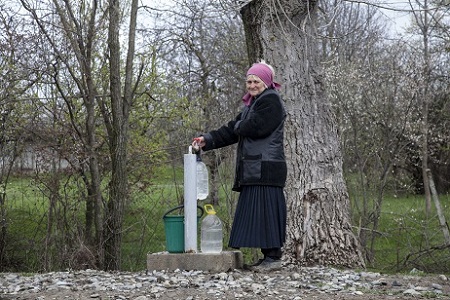OSCE: closed crossing points with breakaway Abkhazia will negatively affect locals

The Organisation for Security and Co-Operation in Europe (OSCE) Chairmanship expressed concern over the closure of two crossing-points between Georgia and its Russian-occupied region of Abkhazia today.
In the official statement the OSCE discouraged the reduction of the number of crossing-points along the occupation line between Georgia and its breakaway region of Abkhazia from three to one by closing Nabakevi-Khurcha and Meore Otobaia-Orsantia crossing-points and leaving Enguri Bridge as the only opportunity to travel.
We have closely followed the latest developments on the ground. We believe this decision has a number of negative consequences, in particular concerning the freedom of movement of the population on both sides of the Administrative Boundary Line. We therefore call for meaningful dialogue as well as swift and pragmatic solutions, in order to avoid further repercussions for the local population’s everyday life”, the spokesperson of the OSCE Chairmanship said in a statement.
Per its official webpage, the spokesperson emphasised the importance of the Geneva International Discussions and the Incident Prevention and Response Mechanism (IPRM) meetings as platforms for constructive engagement. These are co-chaired and co-facilitated by the Special Representative of the OSCE Chairperson-in-Office for the South Caucasus, Ambassador Gunther Bachler.
Since 2008 the Geneva International Discussions (GID) have been the only format of dialogue between Georgia and Russia, where, according to the 12 August 2008 Ceasefire Agreement, issues including non-use of force, creation of international security arrangements in breakaway Abkhazia and Tskhinvali region, and safe and dignified return of IDPs and refugees are discussed. The IPRM meetings were established as a peacekeeping tool that allowed conflicting parties to discuss issues face-to-face at the regular meetings along the ABL.
The breakaway region first announced its intent to close the two crossing points in January. This was followed by protests from locals and statements by international organisations saying this action would be a "grave violation of human rights”.
 Tweet
Tweet  Share
Share